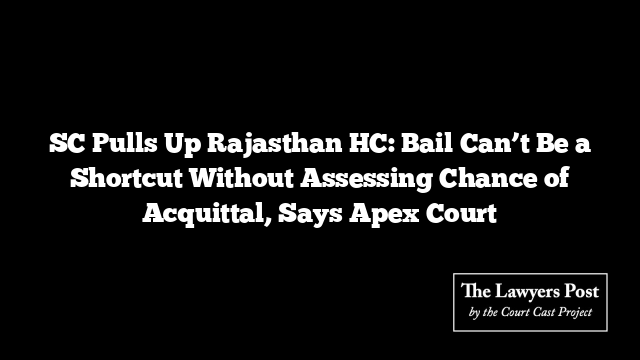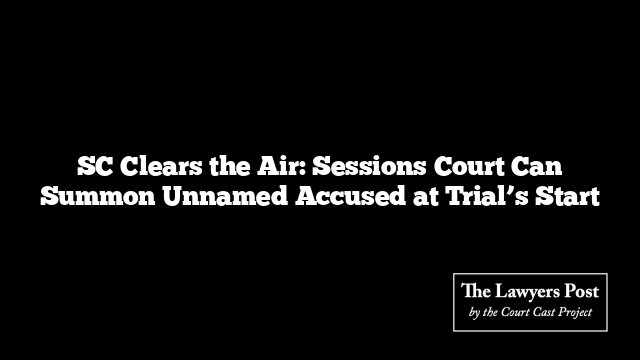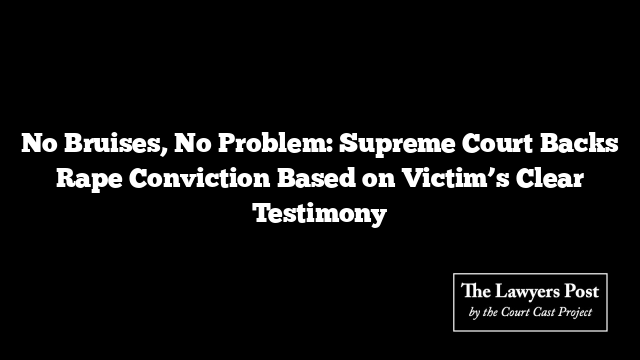The Supreme Court has overturned a bail order issued by the Rajasthan High Court, sending a strong message: suspending a convict’s sentence under Section 389 of the CrPC isn’t just a rubber-stamp procedure — it demands judicial depth.
At the heart of the matter was a man convicted under the POCSO Act and Section 376(3) of the IPC for sexually assaulting a minor girl. The High Court had granted him bail and suspended his sentence. But the apex court wasn’t impressed — not by the haste, and certainly not by the lack of scrutiny.
“A court considering suspension of sentence must ask: is there something palpable on the record to suggest the conviction might not hold?” said the bench of Justices B.V. Nagarathna and K.V. Viswanathan, quoting precedent from Omprakash Sahni v. Jai Shankar Chaudhary. The point isn’t to cherry-pick loopholes, they clarified, but to find something glaring — “gross on the face of the record” — that justifies keeping a convict out of jail while the appeal lingers.
In other words: don’t start re-reading the whole case like a fresh trial. Don’t magnify minor faults. Focus on whether the foundation of the conviction looks likely to crumble under appellate scrutiny.
In this case, the High Court had skipped those steps. It didn’t weigh the nature of the evidence, the gravity of the charges, or even the likelihood of acquittal. That, the Supreme Court held, was a misstep.
The verdict noted that the trial court had rightly trusted the victim’s testimony — a cornerstone of the prosecution’s case. The absence of a DNA report didn’t cripple the case, because the prosecution had already addressed that gap. Medical evidence wasn’t everything, especially when the testimony was strong.
With that, the Supreme Court reversed the High Court’s order, directed the convict to surrender, and reminded all courts that suspension of sentence is not a casual favour — it’s a considered legal act requiring judicial conscience.





